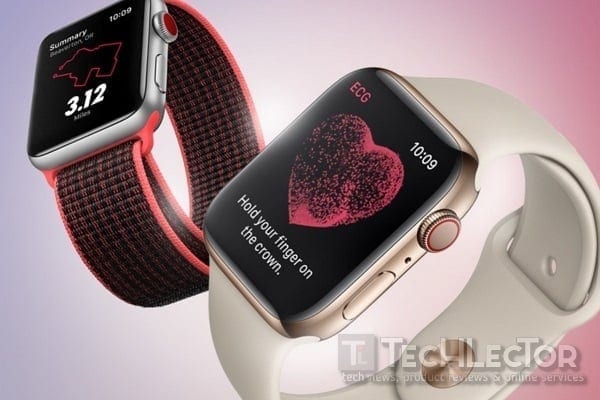A large study sponsored by Apple has revealed that Apple Watch can detect an irregular heartbeat. 400,000 Apple Watch users were invited to participate in the study and the results were presented today in New Orleans at a meeting of the American College of Cardiology. 2,000 participants, or 0.5% of those using the smartwatch, received notification of an irregular pulse beat. The 2,000 received a patch for their Apple Watch, which included an electrocardiogram (ECG) sensor to help detect atrial fibrillation (Afib).
AFib, which is an irregular heartbeat, can lead to strokes, blood clots, heart failure, and other serious problems. AFib contributes to 130,000 deaths annually in the United States. The Apple Watch 4 Series already includes a factory-built ECG sensor, but the study was completed before this new variant of the watch was released. Back in the study, about 33% of the 2,000 study participants who were tagged with an irregular pulse were told they had AFib, according to the ECG sensor.
57% of Apple Watch users in the study sought medical help when they received a warning about an irregular pulse. That number may surprise consumers, as that means that 43% of Apple Watch users in the study ignored the warning. Dr. Mitesh Patel, a professor of medicine at Perelman Medical School, noted that although Apple Watch is good at detecting heart disease warning signs, the watch needs to be combined with something that motivates users to act accordingly. warnings. In other words, receiving a warning without context can be fatal to the user.
When an Apple Watch user in the study received a report of an irregular heartbeat, the notice asked the participant to schedule a telemedicine appointment with one of the doctors associated with the study.
Only 57% of study participants who received an irregular pulse report sought medical help
Researchers behind the study said doctors need to be wary of data obtained from consumer devices when treating patients. On the other hand, a Boston cardiologist named Dr. Deepak Bhatt said the study was very important because more people will use handheld devices in the future.
“Atrial fibrillation is just the beginning, as this study opens the door to further research into wearable technologies and how they can be used to prevent diseases before they occur.”– Lloyd Minor, Dean of the Stanford School of Medicine

